
1800 Birth: Count Helmuth Karl von Moltke: Chief of the Prussian and German general staff. Instrumental in the victories of the Seven Weeks War and the Franco-Prussian War. Von Moltke worked under Bismark to ensure French humiliation and the formation of the German Empire under Prussian Leadership in the latter half of the 19th Century.
Von Moltke was of an aristocratic but poor family in Mecklenburg. His great intellect and organisational ability were to make him one of the key figures of German military history and strategic thought. He was educated as a cadet in Copenhagen joining the Dutch infantry but after a visit to Berlin he sought a commission in the Prussian Army, becoming a Lieutenant in a Grenadier regiment he was transferred to the general staff in 1833, being sent to Turkey as an advisor in 1835.
Von Moltke was one of the first to see the military implications of the Railway but his studies were to take 20 years before they were fully realised. In 1851 he became a full Colonel and was the aide to the future German Emperor Friedrich Wilhelm and he became Chief of staff in 1857. This coincided with the growth of the German railway network in the 1850s which was to make Von Moltke's ideas on the use of the railway for rapid deployment possible. This was a key idea in the move to modern warfare as we know it -it was the start of the process by which the traditional movement of armies on foot and horseback was to be replaced by mechanised transport, be it vehicles or by rail a process which would not be fully realised until the end of the Second World War.
Von Moltke was a key thinker in the move to modern warfare and a genius on matters of transport, supply and reinforcement making the Prussian/German victories of this period possible and in the long run laying the foundation for what would become know as Blitzkrieg four decades after Von Moltke's death. (historyofwar.org) [Note: The family's estate at Kreisau would be the center of an eponymous group of resistance to Hitler.—Ed.]
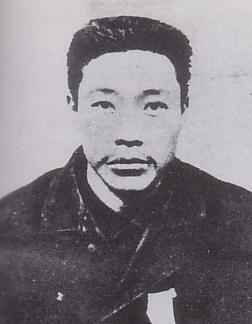
1909: Japanese Prime Minister Itō is assassinated by Jung-geun (above), a Korean nationalist, at the Harbin train station. Note: Itō, an anti-colonialist, had proclaimed that if East Asia would not co-operate together like brothers, all would be absorbed into Western countries. Ironically, his assassination will shift the power balance in Japan and ultimately result in the Japan-Korea Annexation Treaty of 1910.
[See: Countdown to Infamy: Timeline to Pearl Harbor.]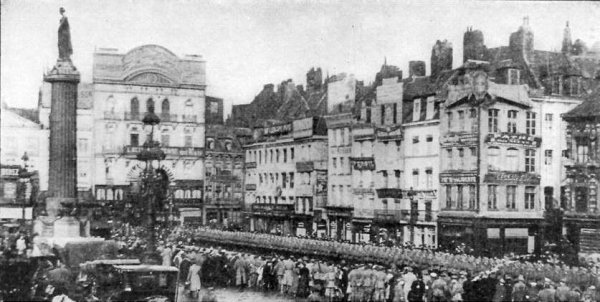
1914 List Regiment (Oct 24 - 26): Infantry Recruit Adolf Hitler's 1st Company, 16th Bavarian Reserve Infantry, spends a few quiet days in Lille before being sent to the front. [For further details, Click here.]

1915 World War I (Oct 4, 1915 - Feb 29, 1916): Gefreiter Adolf Hitler's serves with 16 Reserve Infantry Regiment at Fromelles. [For further details, Click here.]
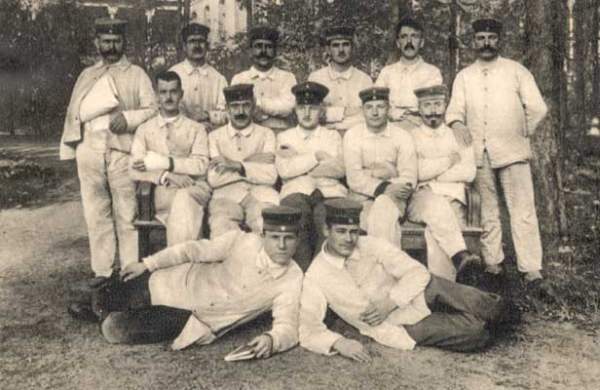

1917 World War I: Brazil declares its decision to enter the First World War on the side of the Allied powers. [For further details, Click here.]
1918 Various:
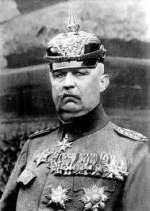
World War I: General Ludendorff resigns his command, immediately before formal dismissal, to permit the desperate German government to comply with Wilson's demand. Hindenburg retains his post as German field commander, with General Wilhelm Groener replacing Ludendorff as chief of staff.
Voelkishness: Autumn Thule (Germanenorden) Grand Master Rudolf Sebottendorff entrusts Karl Harrer, a Munich reporter, with the task of forming a worker's organization affiliated with the Thule Society. (THP)
The Politische Arbeiter-Zirkel (the Political Worker's Circle) is founded in Munich. Its members include Karl Harrer as chairman, Anton Drexler (the most active member), and Michael Lotter as secretary. This tiny group with only three to seven members in regular attendance, meets weekly throughout the winter. Harrer lectures on subjects such as the causes of military defeat, the Jewish enemy and anti-English sentiments. (THP)
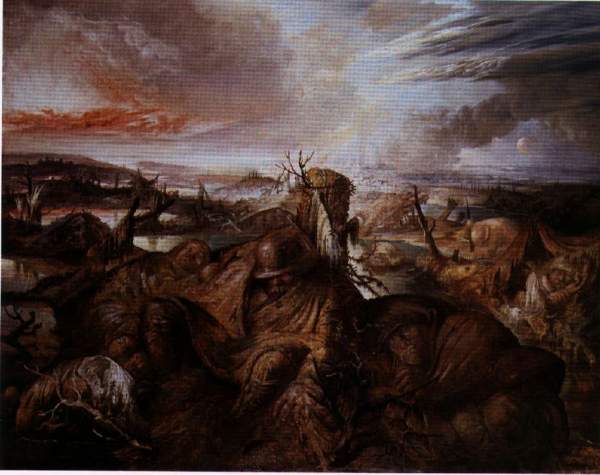
List Regiment (Oct 15 - Nov 10): Gefreiter Adolf Hitler, blinded in a gas attack near Werwick on Oct 14, recovers in the Prussian Reserve Hospital at Pasewalk near Berlin. The doctors at this army hospital, on the cutting edge of medical treatments for gassed soldiers, provide Hitler with very good care, and his sight slowly and painfully begins to return to him over these few weeks. Hitler falls into a deep depression. After over four years on the front lines, his fighting days are over. In four years of war, the List Regiment has lost 3,754 dead, 8,795 wounded, with 678 taken prisoner. This is somewhat above the average for the German Armed Forces as a whole.
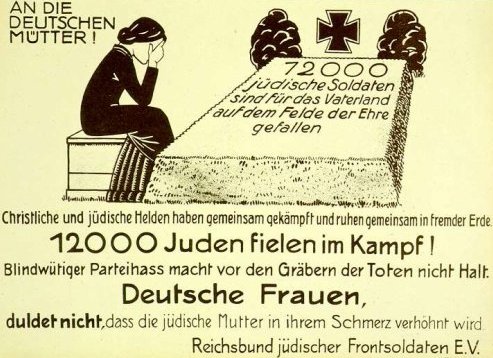
Throughout the length of the war, fifty-nine Jews served in the List Regiment, sixteen of these as officers. Thirty percent of the Jews in the List Regiment were honored for bravery, and seventeen percent were killed in action.[For further details, Click here.]

1923 Nazi Party: Fritz Thyssen—one of Germany's richest industrialists—begins the large-scale financing of Hitler and the Nazis Party. Thyssen, one of Germany's richest men, is in business with Averell Harriman and Prescott Bush (W's grampa), among others. (THP)
1924 The Union Banking Corporation is formally established as a unit in the Manhattan offices of the W.A. Harriman & Co., interlocking with the Fritz Thyssen-owned Bank Voor Handel en Scheepvaart (BHS) in the Netherlands. (THP)
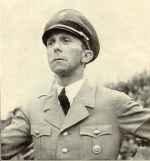
1926 Nazi Party: Hitler appoints Dr. Josef Goebbels the Nationalist Socialist party's Gauleiter in 'Red' Berlin.
1935 Voelkishness: The Order of the New Templars (ONT) presbytery at Hertesburg, near Prerow on the Baltic Sea coast is compulsorily expropriated by Hermann Goering's Reich Forestry Commission as part of the Darrs National Park. Hauerstein then establishes a new presbytery of Petena at the Pettenhof near Waging in Bavaria. (THP)
1938 Holocaust: Himmler orders the police to collect all Polish Jews in Germany with valid passports and deport them before October 29th. (THP)
1940: From an address delivered by US Secretary of State Cordell Hull:
We have sought in every appropriate way to discourage conquest and to limit the area of war. We have followed consistently the policy of refusing recognition of territorial changes effected by force or threat of force. We have taken every opportunity to express our concern over threatened changes by force in the existing political status of colonial possessions, disturbance of which would extend the area of hostilities. We have placed under license the funds of invaded countries. In these respects, too, we intend to continue our activities. [For the full text, Click here.]
1941 Various:
Death: Masha Bruskina, Kiril Trus, and Volodia Shcherbatsevich, partisans:On this date in 1941, the German occupiers of Minsk conducted an infamous public hanging of partisans - perhaps the first such salutary public execution of resistance members of the war. [For further details, Click here.]
From the Diary of Rear Admiral Giichi Nakahara:
The United States Navy Department made a showdown that the transportation route of sending material for the aid of the Soviet was changed to Boston-Archangel course. Of course, this is the policy of giving offense to Japan as well as to deter Japan's good start together with the freezing of funds in the US. Notwithstanding, this will cause a tendency among the Japanese, giving them a sort of optimistic prospect of improving diplomatic relations between the US and Japan; consequently it is feared Japanese resolution may be weakened by such an opinion. The United States prefers to choose a chronic way of entering into the war; the bill of arming merchant marine ships passed the Lower House, and the bill permitting passage into the blockaded area.
In England, on the other hand, there are two elements disputing each other; one is that the British forces should land on the continent, and the other is to send needed materials to the Soviet Union, for the British Empire is not so strong as to be able to land on the Continent. Anyway, England is still agonizing how to help the USSR in this Russian crisis. Russia has promoted to use the forces in the Asiatic Far East. The crisis is so pressing. (Dillon)
1942 World War II: The United States loses the Hornet:
On this day in 1942, the last U.S. carrier manufactured before America's entry into World War II, the Hornet, is damaged so extensively by Japanese war planes in the Battle of Santa Cruz that it must be abandoned. [For further details, Click here.]
1943 World War II: War in the Air: The RAF launches a heavy night raid against Stuttgart, while the US 8th Air Force , in its greatest effort to date, delivers a devastating daylight attack on Bremen.
1944 World War II: Various:
Battle of Leyte Gulf ends:
After four days of furious fighting, the World War II Battle of Leyte Gulf, the largest air-naval battle in history, ends with a decisive American victory over the Japanese.
With the U.S. liberation of the Philippines underway, the desperate Japanese command decided to gamble their combined naval fleet to repulse the Americans. On October 23, the enemy fleets collided, and hundreds of warships and thousands of aircraft battled for control of the Gulf of Leyte in three simultaneous battles. On October 26, what remained of the devastated Japanese fleet retreated, leaving the Allies in control of the Pacific Ocean.
After the Battle of Leyte Gulf, the Allies waged an escalating bombing campaign against the Japanese home islands, finally forcing Japan's surrender in August 1945. (History.com)
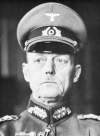
Western Front: Rundstedt, who has been restored as Commander-in-Chief in the West, is given overall responsibility for the planned counteroffensive in the West. The armies involved are the Fifth Panzer Army, commanded by Hasso von Manteuffel, Sixth Panzer Army, under Waffen-SS General Sepp Dietrich, and General Erich Brandenberger's Seventh Army, consisting mostly of SS formations. The attack through the Ardennes is scheduled for November 25th.
Holocaust: Himmler issues orders to destroy the crematoria at Auschwitz-Birkenau in an attempt to eliminate the evidence of Nazi mass murder. (THP)
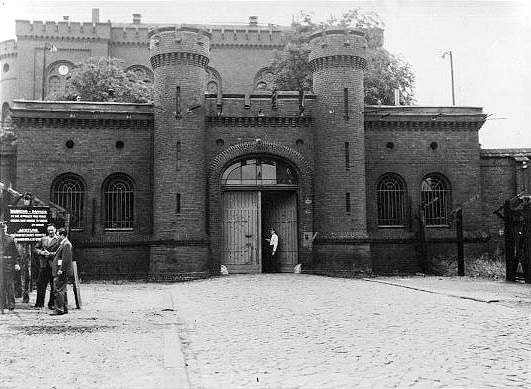
1954 Spandau Prison: From Spandau: The Secret Diaries, by Albert Speer:
At the Paris Conference it was decided to admit the new German army into NATO. Die Welt has a report on the structure of this new army and its methods of training. Doenitz took a critical view: "A mistake not to build the Bundeswehr on the traditions of the Wehrmacht. They are cutting off the limb they are sitting on." And Schirach exclaims, "Outrageous! Saluting officers only once a day! And no more high boots! I can't understand it. The best part of the army." Doenitz was more interested in what all this might portend for us. "I've never ventured to prophesy, but this time I predict that all of us will be going home next spring. The Western Powers simply cannot keep us prisoners longer than that. My naval officers simply wouldn't go along with it."
[See: Are There Any Lasting Effects From the Nuremberg Trials?]1955 Diem declares himself premier of Republic of Vietnam:
Ngo Dinh Diem declares that pursuant to the wishes of the South Vietnamese people, as evidenced in a national referendum a few days before, the Republic of Vietnam is now in existence and that he will serve as the nation's first president. The event marked a crucial step in the deepening U.S. involvement in Vietnam, and gave evidence of some troubling aspects that would characterize Diem's eight years in power. [For further details, Click here.]
Edited by Levi Bookin (Copy editor)
levi.bookin@gmail.com



Click to join 3rdReichStudies



Disclaimer: This site includes diverse and controversial materials--such as excerpts from the writings of racists and anti-Semites--so that its readers can learn the nature and extent of hate and anti-Semitic discourse. It is our sincere belief that only the informed citizen can prevail over the ignorance of Racialist "thought." Far from approving these writings, this site condemns racism in all of its forms and manifestations.
Fair Use Notice: This site may contain copyrighted material the use of which has not always been specifically authorized by the copyright owner. We are making such material available in our efforts to advance understanding of historical, political, human rights, economic, democracy, scientific, environmental, and social justice issues, etc. We believe this constitutes a "fair use" of any such copyrighted material as provided for in section 107 of the US Copyright Law. In accordance with Title 17 U.S.C. Section 107, the material on this site is distributed without profit to those who have expressed a prior interest in receiving the included information for research and educational purposes. If you wish to use copyrighted material from this site for purposes of your own that go beyond 'fair use', you must obtain permission from the copyright owner.
Please Note: The list-owner and the moderator of 3rdReichStudies are not responsible for, and do not necessarily approve of, the random ads placed on our pages by our web server. They are the unfortunate price one pays for a 'free' website.